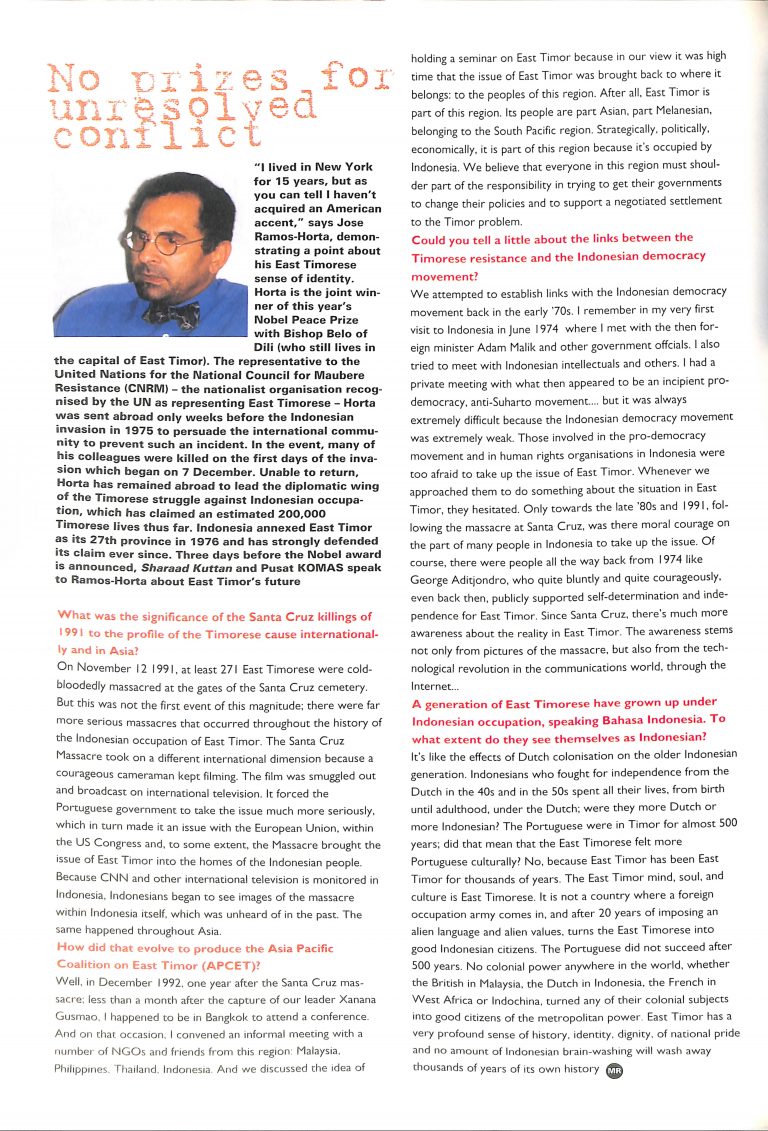It was just days before the announcement of the year’s Noble Prize winners, that I, together with others, sat with Jose Ramos Horta on the floor of the SUARAM office discussing the second Asia Pacific Conference on East Timor (APCET2) . We took Jose to Acha’s, a section 5 PJ banana leaf almost restaurant, coincidentally adorned with placards of previous Nobel prize winners by the very chatty numerologist cum restauranteur. Most recently (2019) I attended the 20th Anniversary of the United Nation’s referendum on the territories independence because of my official role as co-convener of APCET2. We shook hands again. I wonder how he kept faith in the cause of Timorese Independence despite the extraordinary obstacles, the stunning convergence of events that led to Timor Leste’s independence and the sometimes bloody mess that is Timor’s politics today. I filed several stories from Dili though I wasn’t on assignment; one with the foreign minister which I recorded on my iPhone, taking time out from an otherwise leisurely visit (my first and only) with some connections to make something more of my well-deserved junket. My political activism has lead my writing and journalism in productive directions, but it might also be said, that my journalistic work, and what I have observed as a result, has lead me out of political activism.
A lot can be written of the political context of the Conference – oddly enough, I have never really attempted to do that – and the people who squared up in that fight (later to become allies) but many inconsequential details remain eg. losing my copy of Timothy Mo’s “The Redundancy of Courage” which is a fictional account of the story of East Timor, or learning later that a gorgeous young activist who went by the code name Rousseau was later to become the country’s Ambassador to the UN. So many lives intersected in the campaign for East Timor’s independence; the last paragraph of this statement by Max Lane, socialist activist and translator of Pramoedya Ananta Toer “Bumi Manusia”, lists just a few.
SUARAM is a human rights organisation and was set up in response to the wave of Internal Security arrests in the 1988 Operation Lalang; I started as a volunteer before going full-time then, not long after, in a pique (my life is littered with such piques) I left it.
